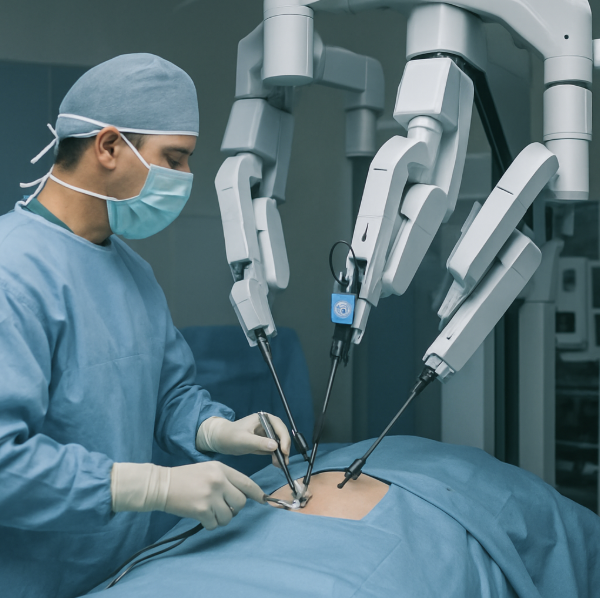In the age of rapid technological advancements, the question arises: can artificial intelligence (AI) truly replace human physicians? As healthcare automation grows, AI in healthcare is becoming an increasingly significant topic. But will AI replace doctors? This article explores the potential and limitations of AI in the medical field, providing a comprehensive analysis for those intrigued by the intersection of technology and healthcare.
AI is transforming various industries, and healthcare is no exception. The promise of AI lies in its ability to process vast amounts of data quickly and accurately, providing insights that can enhance patient care and streamline operations. From predictive analytics to robotic surgery, AI applications in healthcare are diverse and expanding.
Predictive Analytics and Diagnostics
AI algorithms excel in analyzing large datasets to identify patterns and trends. In healthcare, this capability is leveraged for predictive analytics, helping physicians anticipate patient outcomes and make informed decisions. AI can assist in diagnosing diseases by analyzing medical images, pathology slides, and genetic data, often with remarkable accuracy.
For instance, AI systems have demonstrated proficiency in detecting conditions like diabetic retinopathy, skin cancer, and even predicting heart disease by analyzing retinal scans. These technologies are not just augmenting doctors’ capabilities but also democratizing access to high-level diagnostics in regions with limited medical resources.
Robotic Surgery and Personalized Medicine
Robotic-assisted surgeries have gained popularity due to their precision and minimally invasive nature. AI plays a crucial role in enhancing these robotic systems, providing real-time feedback and improving surgical outcomes. Moreover, AI is driving personalized medicine by tailoring treatments based on individual genetic profiles, lifestyle, and environmental factors.
Personalized medicine promises to revolutionize patient care by offering therapies specifically designed to match a patient’s unique genetic makeup. This approach not only improves treatment efficacy but also reduces the risk of adverse effects, offering a more targeted strategy in managing diseases.
Limitations and Challenges of AI in Replacing Human Physicians
While AI presents exciting possibilities, it is essential to recognize its limitations. AI systems, despite their computational prowess, face hurdles that prevent them from fully replacing human physicians.
Data Limitations and Bias
AI systems are only as good as the data they are trained on. Incomplete, biased, or unrepresentative data can lead to erroneous conclusions and exacerbate existing healthcare disparities. Ensuring the quality and diversity of data is paramount to the successful implementation of AI in healthcare.
For example, AI models trained on datasets that lack diversity may perform poorly across different demographic groups, leading to biased outcomes. Addressing these data limitations is crucial to ensure that AI applications are equitable and effective for all populations.

The Future of AI and Human Physicians
The integration of AI in healthcare is not about replacing human physicians but rather enhancing their capabilities. AI serves as a tool that can augment clinical decision-making, improve efficiency, and facilitate better patient outcomes. The future of healthcare lies in a symbiotic relationship between AI and human practitioners, where each complements the other’s strengths.
Augmenting Human Expertise
AI can handle repetitive tasks, analyze complex datasets, and provide evidence-based recommendations, freeing physicians to focus on patient care. By automating routine processes, AI allows healthcare professionals to dedicate more time to patient interactions, research, and continuous learning.
Collaborative Healthcare Ecosystem
The future envisions a collaborative ecosystem where AI systems work alongside human physicians, nurses, and allied health professionals. This collaboration can lead to a more integrated and efficient healthcare delivery model, ultimately benefiting patients through improved access, quality, and affordability of care.
Conclusion
In conclusion, while AI holds tremendous potential in revolutionizing healthcare, it is not poised to replace human physicians entirely. Instead, AI should be seen as an enabler, enhancing the capabilities of healthcare professionals and transforming the way care is delivered.
For Chief Technology Officers, Business Strategists, and Innovation Managers, the challenge lies in effectively integrating AI into healthcare systems while addressing data and operational concerns. By leveraging AI’s strengths and acknowledging its limitations, we can pave the way for a future where technology and human expertise work hand in hand to improve patient care.
The journey ahead requires thoughtful consideration, collaboration, and innovation to ensure that AI contributes positively to the healthcare landscape. As we navigate this transformative era, one thing is clear: the partnership between AI and human physicians holds the key to unlocking a new horizon in medical practice.




